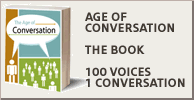
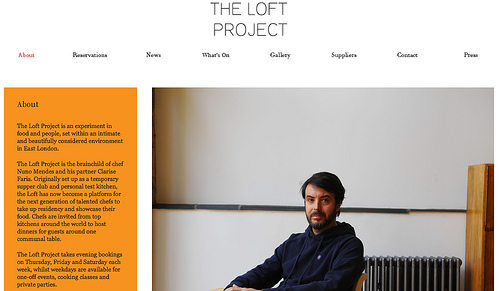
Restaurant experiences can be amazing, but you are often just one of quite a few "covers" being served that night, you have very little connection and feedback from the chef and you are distanced and not interacting with any of the other guests.
As people increasingly crave special and unique experiences, there are pioneers looking for new ways to deliver these experience and transcend the typical restaurant experience.
Nuno Mendes and Clairse Faira at The Loft Project in London are two such pioneers who invite leading up and coming chefs to cook in an intimate setting and have their guests seated at a single communal table.
Obviously, there are are tremendous number of ways in to providing new experiences for dinners, Outstanding in the Field, is another great example. Restaurants should think carefully about how they might twist the familiar into something unexpected and fresh, their audience is looking out for it.
Via We Heart
Posted by Ed Cotton
Urban Outfitters is a very disciplined brand, that's stuck to what it does well and weathered the storm that's knocked many a retailer, backwards.
They know who they are, who their audience is and make sure they are always in touch.
The image above shows the site of a new store being developed by UO, interestingly it's not across the road from a college campus, but in one of the most prestigious shopping streets in the world, New York's 5th Avenue.
This is further confirmation that the brand has truly arrived as a retail powerhouse.
What they plan for the store remains to be seen, but you can imagine a flagship concept being very different from regular stores, with a lot more opportunity for creative interaction.
Posted by Ed Cotton
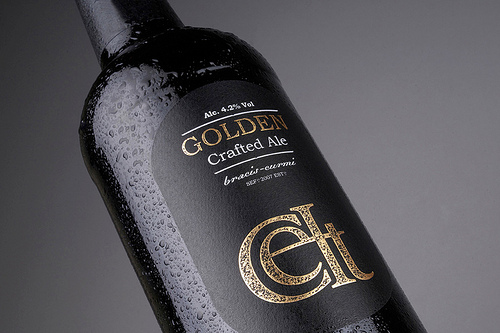
We are at an interesting moment in the world of premium products; brands have to be careful not to push back to the recent past too strongly and there's a real need for a new language to begin a new conversation.
There's something truly unique about this Welsh beer and beverage company "The Celt Experience" because it combines heritage/Celtic history and puts a premium twist on the concept.
There was certainly one way to play with Celtic heritage and bring it right back to the purest basics, or to do what's been done here which is to celebrate the aura and mystique around the concept.
Here's a description of the company behind it.
"The Celt Experience is a brewery inspired by Celtic history, to produce a range of organic ales, hand crafted lager and organic ‘pops’. The Celt Experience combines modern brewing equipment with ancient Celtic brewing methods, creating flavoursome and holistic beers."
Maybe were going to see more of this with with brands taking ancient, primitive and simple concepts and putting a premium twist on them.
Via The Dieline
Posted by Ed Cotton
Here's a shot of a new Fuji digital camera, that's loaded with digital capability and looks like it was designed in 1962.
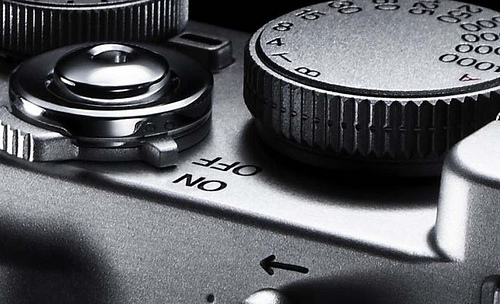
Is everyone being influenced by Mad Men?
Posted by Ed Cotton
A couple of great examples:
Lomography is a company that's pushing and promoting the creativity of analog photography and doing a fantastic job.
They're set to open store no2 in NYC, very soon.
While technology is finding it's way into eating establishments- think iPads and flat screens, others are pushing more analog menu styles.
As spotted by Eater.
"...alot of casual counter service-style restaurants opt for chalkboard menus or printed boards above the kitchen or cash register. But in the past few months these movie theatre concession stand-style menus have popped up at cool-kid newcomers Pies 'n' Thighs, The Commodore, and M. Wells, either as the sole menu, or as decoration. It’s as much of an aesthetic choice as a practical one, and instantly communicates an old-school charm."
Further proof that it pays to think of trends as being bi-directional; for every strong theme, there's always a powerful counterpoint.
Posted by Ed Cotton
Blogs have their limits and there are tight limitations on your ability to get your feelings and philosophy out there, if you are limited to 11 or 12 timely news focused posts per day.
The decision to open a store would make a logical sense from a business perspective, it's easy to do especially online and it seems like an obvious extension for people who write about cool design to sell the objects that these cool designers make.
However, given the lack of opportunity to influence on the blog and the rise of making as a phenomenon in the US, they wanted to do something different and create a store dedicated to the act of making.
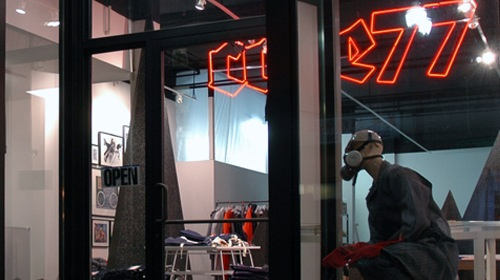
As they explain..
"Over the past 15 years we've watched and cheered and done our part to help push design to the prominence it enjoyed in that earlier era. With the zealotry of converts we spread the word. And then with similar visceral emotion we watched as culture and commerce and design entwined...
The annotation of the design process and its spread to the board-room
and the business-book aisle for the purpose of improving market
capitalization. The reduction and division of design's complex and
mysterious core into silos of formulaic practice: user-centered design,
sustainable design, "design thinking". Media exaltation of the
designer as author - defining creative work as genius self-expression
and cordoning off the creative act from the public with a velvet rope.
The heart of design - of making things - was simultaneously diminished and aggrandized; made explicit for the business community, moved to the distance for the average person. It is this heart that we wish to gently massage back to a healthy beat. DIY and crafting have done their part to spread the "making meme" out in the general public, and the time is right to see it restored to the practice of design."
This makes sense for many reasons; there's a need to connect back to the fundamentals of design. It seems with CAD systems and Chinese factories, design has become a button-pushing game; far removed from the physicality of objects. This foundational idea to get "making" back on the designer's agenda is a good thing.
But is there more at stake?
Clearly, the value of making and tinkering has been going through something of a resurgence in various parts of culture. This tends to be personal and home-based and we've seen it rise to a large scalable business in the craft world with Etsy, but it's still small. Maybe this is what manufacturing in the US has become; a craft project, but if anyone has serious designs about keeping what manufacturing exists in this country and bringing some scalable manufacture back; it's going to take some kind of infrastructure, skilled workers and a public who's willing to pay a premium for US made. This is going to take more than a store and something like a $200 million global brand Made-in-the USA effort.
Posted by Ed Cotton
